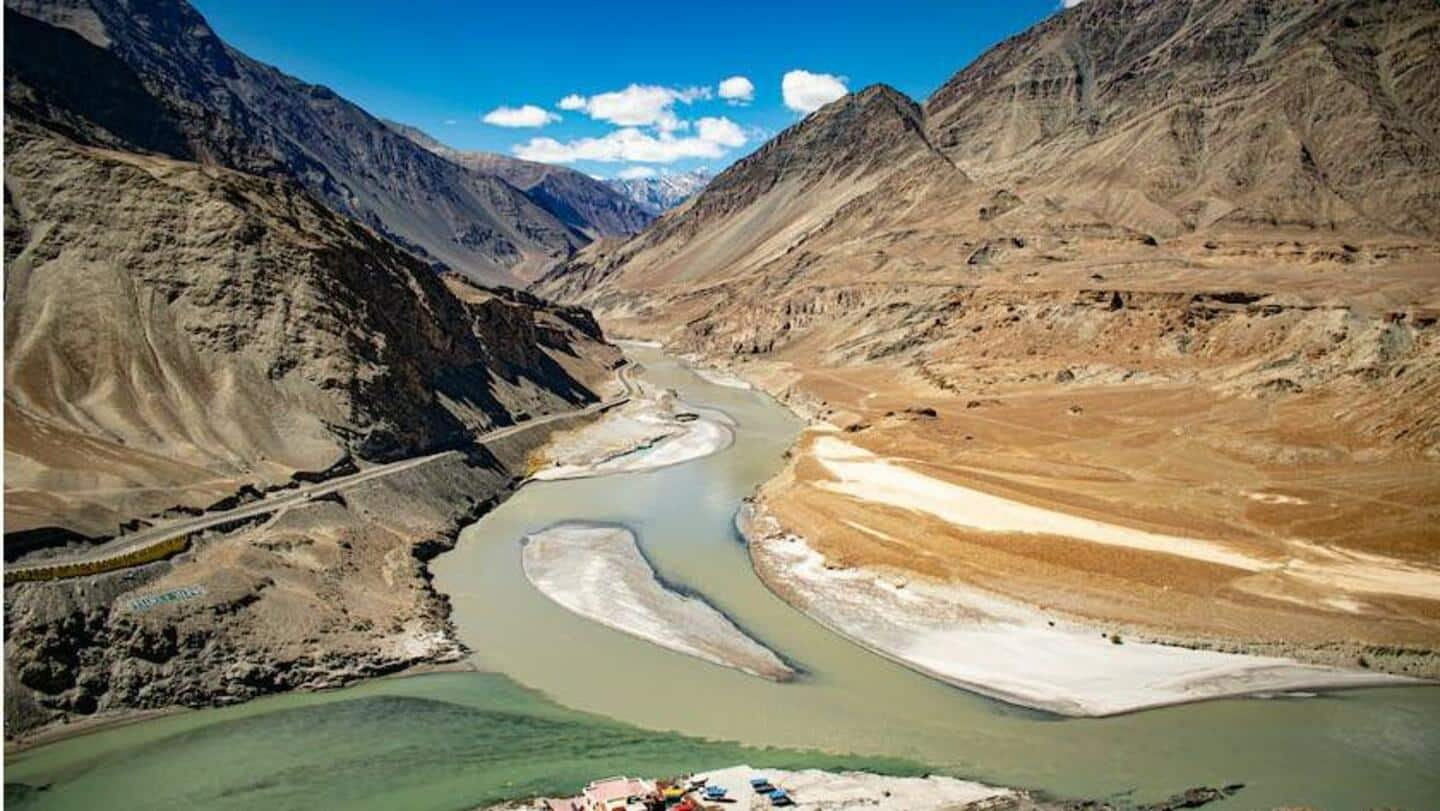
India wants to change Indus Waters Treaty, cites Pakistan's 'intransigence'
What's the story
India issued a notice to Pakistan on Wednesday expressing its wish to modify the Indus Waters Treaty (IWT) of 1960, blaming the latter for "intransigence" regarding the treaty's implementation. The modification aims at adopting a mechanism for the management of cross-border rivers. The notice says that Pakistan's actions have "adversely impinged on the provisions of IWT and their implementation," forcing India to seek changes.
Context
Why does this story matter?
This comes as, in the last five years Pakistan has repeatedly turned down India's proposal to discuss and resolve the issue of its Kishenganga and Ratle Hydro Electric projects. The treaty is reportedly the most durable between the neighbors but is facing pressure since bilateral relations have strained in recent years following allegations of Pakistan harboring terror elements and tensions in Jammu and Kashmir.
Changes
Changes supposed to make entering negotiations easier for Pakistan
The proposed changes are supposed to make entering intergovernmental negotiations accessible for Pakistan within 90 days and subsequently, mend the 'material breach' of IWT. It would also serve as an update for IWT to embody the lessons learned since it was signed in September 1960 with the World Bank as a signatory after nine years of negotiations between both countries.
Details
Pakistan simultaneously sought neutral expert and Court of Arbitration
In 2015, Pakistan sought a neutral expert to assess its technical objections to India's Kishenganga and Ratle Hydro Electric projects. However, it back-pedaled next year, unilaterally calling for a Court of Arbitration to adjudicate its objections. Following this, India requested that the matter be referred to a neutral expert as the two simultaneous processes sought by Pakistan breached the graded mechanism of dispute settlement.
World Bank
World Bank acknowledged risk to IWT from potential contradictory outcomes
The World Bank acknowledged that the two parallel processes on the same questions could give rise to "inconsistent or contradictory outcomes," which would be legally untenable, thus endangering IWT itself. After this, the World Bank paused the initiation of the simultaneous processes and urged both countries to arrive at an amicable solution. However, at Pakistan's persistent insistence, the World Bank recently initiated both processes.
IWT
IWT facilitates a mechanism of cooperation and information exchange
The IWT provides for a mechanism of cooperation and information exchange between both neighbors concerning the utilization of waters from several rivers. The control of the three eastern rivers—Beas, Ravi, and Sutlej is given to India, while Pakistan commands the three western rivers—Indus, Chenab, and Jhelum. Around 80% of the total water carried by the Indus falls in Pakistan, and the rest in India.